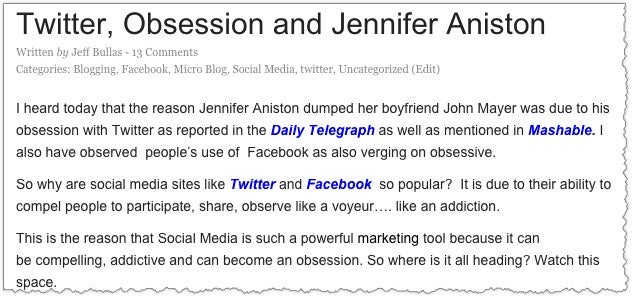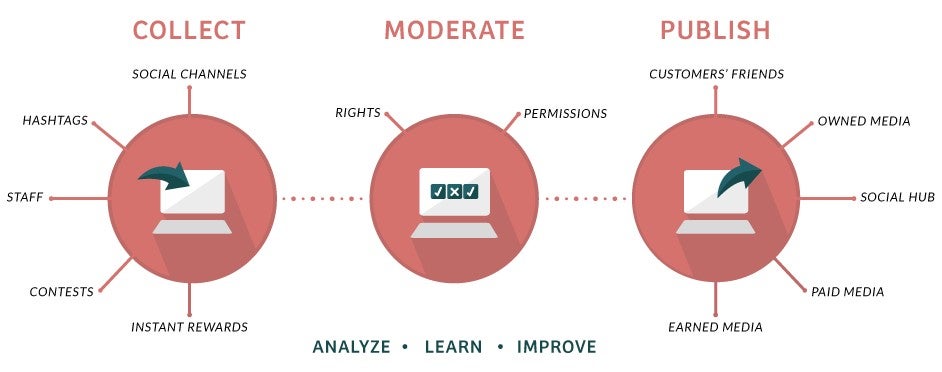
Myths are woven into our DNA. We have heard about the Loch Ness Monster, the Yeti, dragons and other man made creations and legends that live more within the imagination than reality. But without those tales, the tapestry of our lives would be a little less. Who wants to take away the fairies, super heroes and Santa Claus? Stories are intrinsic to what makes us human.
The art of storytelling is part of every culture. Sharing the events of the day around a camp fire, the kitchen table or the company water filter often sees us conjuring up a romantic image of the compelling wordsmith and the entertaining jokester. “Don’t let the facts get in the way of a good story” is something that needs to be embraced.
Content marketing is an art and a science
Content marketing has become an art and a science with a dash of promotion in the mix. Like any good cake recipe, the right types of ingredients and the quantities will be the difference between success and failure. In that mix sit terms like engagement, trust and credibility. All good, but on their own the cake won’t rise. So what are some of the myths that have emerged around the digital content campfire?
Related Article: The 3 Key Steps to Awesome Content Marketing That Works
Myth #1. Build it and they will come
Content marketing is synonymous with the term inbound marketing. Add the other phrase “attraction marketing” to the discussion and people think that content on its own will produce traffic and leads. The misunderstanding of the true meaning of these terms leads people to think that just creating the content will attract opportunities and produce business changing marketing strategies. Content marketing is two words and content is only one of them.
Myth #2. Content creation is more important than the marketing
This follows on from the first myth. The creatives and the writers of this world often fall into this trap. Their misguided mantra is often “I create and therefore I will succeed.” Sorry, that won’t do.
Some of the best artists of this world often had a “hustle gene” or a partner that went out and made it happen. Salvador Dali, the famous Spanish surrealist painter was a painter that was not only the creator but the marketer. He maybe took it a little bit too far. But he knew how to get attention. In a digital world the sheer noise, velocity and volume of content creation means that the marketing is 50% of the game.
Viral content is often associated with luck. Publishers like Buzzfeed and Upworthy have made us realize that leaving it to luck is not an option. Content marketing success is now more science, big data and the relentless pursuit of optimizing content for sharing and traffic.
Myth #3. Tons of ordinary content is enough
What is ordinary content? To me it means a bland 400-600 word blog post that is missing a voice, insights and an x-factor. Visuals are also vital. I could go on but you know what I mean. Ordinary content shouts out these messages: I don’t care, just having a go or maybe it reveals an underlying lack of confidence that says, “Who would want to read my stuff anyway?”
The competition for online attention is getting harder and when I started 6 years ago the content standard required wasn’t as high. This is one of first blog posts that I published on March 25, 2009. This will not do today. Disclaimer: But, don’t let that stop you from starting the content marketing journey.
Some recent research by Andy Crestodina from Orbit Media about the standard of content for bloggers (and content marketers) is revealing with 1.500 word posts becoming mainstream. Content marketing is growing up. Taking something from “good to great” means more reading, more polishing and maybe some deeper research. It means wrestling and wrangling the content into an art form that reveals your brand purpose and mission.
But I forgot something. Passion. Being passionate about your topic is often the difference at the end of the day. Content that is written just for inbound links and search is often missing the heart and soul of what awesome content is all about.
Myth #4. Content marketing is more about search engines
Google’s mission “To organize the world’s information and make it universally accessible and useful.” has sometimes lead to an abomination or two in content marketing strategy execution. Their motto “don’t be evil” is maybe something that good content marketers should embrace.
Writing content that is just written for search engines should be made a sin. Write for humans, touch their emotions and your content has a much better chance of being shared with viral velocity.
Myth #5. Good content marketing doesn’t need much technology
Social media and content marketing are almost like kissing cousins. Related, close but not the same.
When content marketing emerged, the technology that surrounded it was either raw or non-existent. Using social content was seen as a manual job otherwise it was not proper. The thinking was often that “using technology made social not social.”
The reality is that content marketing is many moving parts. This includes, images, videos, blog posts, many social networks, multiple media, metrics, optimization, email, search and more. You will need technology, apps and digital marketing technology platforms to create, publish, launch, manage and measure “at scale.”
This means marketing automation platforms like Hubspot, Infusionsoft and Marketo are becoming essential for even small to medium businesses. It also means using technology and apps like Shuttlerock that enable you to crowd source content from your readers, fans and advocates. Make it easy for your marketing team to collect, curate and publish brand content.
Myth #6. Content marketing is just about giving away free content
Bloggers are the epitome and essence of content marketing. Many bloggers (and content marketers) have fallen into the trap of only giving away free content. They forget to ask for something in return. They think that conversion from traffic to leads and sales will happen on its own. You need optimized “Calls to Action.”
Want something for free like a free PDF then I need an email in return. Want to read that ebook? That will be $7 thank you. Want some premium resources and maybe online training then the credit card needs some loving.
Great content marketing achieves 3 goals. It’s a lot like dating. Attraction, seduction and commitment. In digital marketing that translates to the following.
- Traffic
- Engagement
- Conversion
If you don’t achieve the last goal then you are doomed to fiscal failure.
Myth #7. Content marketing automation is evil
Content first has to be created, then it needs to be published and finally it needs to be free to be pushed out into the big wide digital world and achieve its mission. That will mean it may have to achieve many roles:
- Growing brand awareness
- Building credibility and trust
- Drive link building
- Create thought leadership
For a noisy world with 2 billion smart phones and 1 billion websites, this means that automation will be a necessary evil. Some call it inhuman and others call it smart. My mantra is this: “Automate the content distribution but not the conversation” This means you can be authentic and smart!
Over to you
Are you using digital marketing automation software as part of your content marketing strategy? What is the standard of your blog posts?













